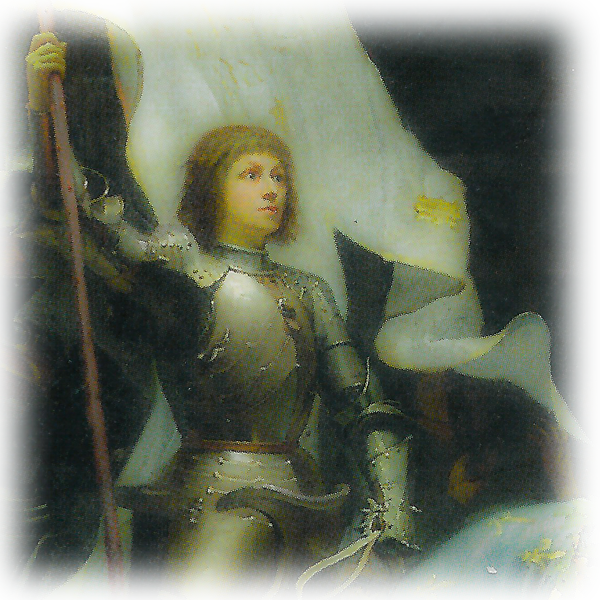Synopsis

Summer 1428. France is losing its war with the invading English and God’s ANGELS call upon a simple peasant shepherdess, JOAN, to go to the aid of her troubled Dauphin, CHARLES VII of Valois, to inspire his dispirited French forces and lead them to victory against the combined forces of England and Burgundy. Despite her misgivings and fears, Joan obeys.
December 1428. At the loyalist French court, the Dauphin Charles fears that he himself may actually be the cause of the prolonged conflict, a conflict which carries such a large toll in human suffering – that he may not be of royal blood and therefore not rightfully king. So he asks God for a sign. March 1429. Joan traverses war-torn France and gives her Dauphin the sign he had asked for. Deeply moved Charles has his church-men examine her and they find her good, chaste and true. With much hope and a qualified trust, Charles gives Joan the men-at-arms she requests to fight the war.
May. On the road to battle Joan meets the dispirited French men-at-arms and motivates them to put away their differences and bond as brothers – that they may defeat their enemy in the strength born of unity. With renewed spirit Joan and her men win numerous battles against the English/Burgundian forces. In July Joan then boldly marches Charles through enemy-held territory to Reims, the city whose cathedral is the time-honored altar of official French coronation, where among throngs of loyal French Joan sees Charles crowned.
September. On the wings of victory Joan sets her eyes on Burgundian-held Paris, attacks and, for the first time, loses. Joan and Charles, though friends, are at odds: although Joan wants to continue fighting through the winter, Charles disbands the army, signs a number of temporary treaties with the Duke of BURGUNDY, and orders Joan to put a respite on war.
With the onset of Spring 1430 Joan returns to the battlefield, is quickly captured by her Burgundian enemies and held by the Duke of Burgundy for ransom. Working on behalf of the English, the French BISHOP of Beauvais, Pierre Cauchon, brokers a deal whereby Joan is purchased by England to be tried by the French church sympathetic to the English cause for the crimes of witchcraft and heresy.
May 1431. Near the end of Joan’s trial the Bishop tricks her into signing an abjuration which states she denies belief in her Angels. Joan’s English jailers then, fearful they are losing the chance to execute her, abuse her horribly. The decision for Joan is now terribly clear: endure the terror and ignominy of perpetual English imprisonment or do her penance once and for all. True again to her self Joan chooses to renounce her abjuration and is burned at the stake as a relapsed heretic.
Some thirty years hence Charles lies on his deathbed, fearful and full of remorse. Joan then appears from her eternal reward to escort her dear friend heavenward, where she assures him the dawn does indeed becomes the day.

